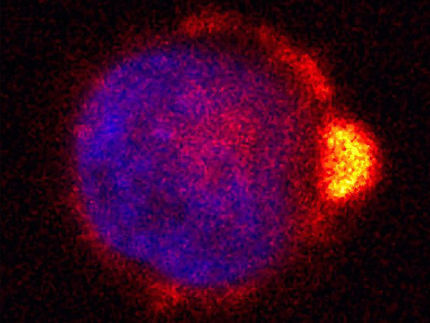New hope for cancer patients
Researchers identify first step in design of new anti-cancer drugs
Advertisement
New research co-led by the University of Kent has identified a first step in the design of a new generation of anti-cancer drugs that include an agent to inhibit resistance to their effectiveness.
The research by a team led by Professor Martin Michaelis of Kent’s School of Biosciences, in conjunction with Professor Jindrich Cinatl of theGoethe-University, Frankfurt am Main, Germany, could pave the way for tailored combinations of drugs that would provide more effective treatment for patients suffering from therapy-resistant cancers.
Drug resistance is the major reason for the failure of anti-cancer therapies and patient deaths. Despite major improvements in cancer treatment in recent decades, cures are still mostly achieved by early cancer detection and local therapy using surgery and radiotherapy. Once cancer cells have spread throughout the body and formed metastases (secondary tumours), the prognosis remains grim with 5-year survival rates being below 20%.
Effective systemic drug therapies are needed therefore to improve the outcomes of patients diagnosed with metastatic disease. However, many cancers are characterised by intrinsic resistance, where there is no therapy response from the time of diagnosis, or acquired resistance, where there is an initial therapy response but cancer cells eventually become resistant.
Arguably, the most important resistance mechanism in cancer cells is the action of so-called ATP-binding cassette (ABC) transporters, drug pumps that act as a mechanism to move anti-cancer drugs from cancer cells. Of these, ABCB1 (also called multi-drug resistance gene 1 (MDR1) or P-glycoprotein) is the most relevant one. Previous attempts to target ABCB1 as part of anti-cancer therapies have failed.
A major reason for this is that ABCB1 is expressed at many sites in the body, particularly at tissue barriers such as the gastro-intestinal barrier and the blood brain barrier. This has meant in the past that agents that inhibited ABCB1 were not specific to the interaction of the desired anti-cancer drug with the ABCB1 on cancer cells but affected the body distribution of many different drugs and food constituents, resulting in toxic side-effects.
The new research demonstrates that certain inhibitors of ABCB1 specifically interfere with the ABCB1-mediated transport of certain anti-cancer drugs. This provides a first step towards the design of tailored combinations of anti-cancer drugs and ABCB1 inhibitors that specifically cause the accumulation of anti-cancer drugs in ABCB1-expressing cancer cells but do not affect the body distribution of other drugs or food constituents.
Original publication
Martin Michaelis, Florian Rothweiler, Mario Wurglics, Natália Aniceto, Michaela Dittrich, Heiko Zettl, Michael Wiese, Mark Wass, Taravat Ghafourian, Manfred Schubert-Zsilavecz, Jindrich Cinatl; "Substrate-specific effects of pirinixic acid derivatives on ABCB1-mediated drug transport"; Oncotarget; 2016
























































